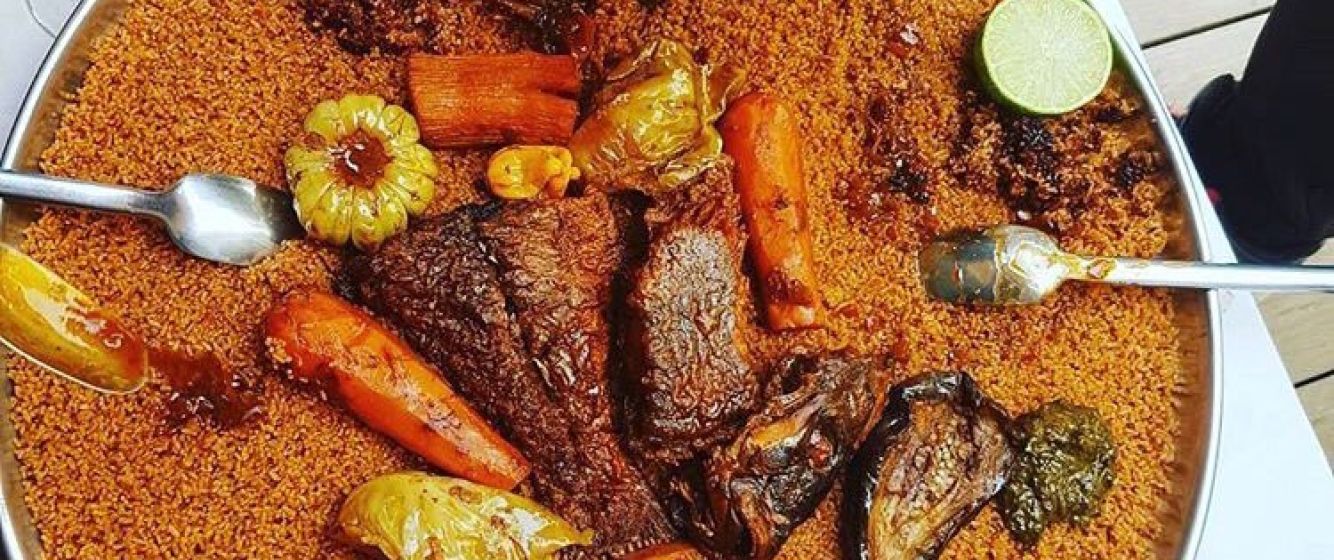Dans de nombreuses cultures, les habitudes alimentaires ont contribué à façonner les individus. Par exemple au Sénégal, de nombreuses valeurs étaient transmises autourdu repas en famille. Aujourd’hui ces traditions alimentaires se raréfient et tendent àperdre leur portée sociologique.
Dans de nombreux foyers, la famille se rassemble autour du bol pour partager les repas. Cette pratique est perpétuée depuis des lustres par des générations de Ngueyenne et de Ndiawène, notamment autour du traditionnel Cebu jen (riz aupoisson). La signification et l’origine n’en sont pas très connues. De l’avis de Mbaye Diagne, notable lébou, cette tradition avait une haute symbolique. D’abord les anciens prospectaient l’endroit où implanter le bol. Ils y faisaient des prièrespour protéger la famille contre la faim, la pauvreté et la maladie. En outre le repas autour du bol illustrait la solidarité. « La famille partage le repas avec des voisins etamis, des liens sont ainsi scellés. Il n’y plus de querelle ou dissension possibles. »Dans les très grandes concessions, la famille implantait deux bols. Les petites filless’asseyaient avec les femmes, les garçons avec les hommes. Une fois réunie autour dubol, ils attendaient que le plus âgé dît bismilah (au nom de Dieu). Alors les mains plongeaient pour en ressortir une poignée du précieux ceeb sans en perdre une miette. Puis il fallait délicatement le mettre à la bouche et mastiquer sans bruit.Le repas était aussi l’occasion pour les aînés d’inculquer certaines valeurs aux pluspetits. En mangeant, ils observent la manière dont les enfants procèdent, pour les rectifier. Ces derniers doivent avoir le doigt gauche sur le rebord du bol, pour éviter entre autres de se gratter. Ils ne doivent point bavarder, ni porter la main au milieu du bol. Les adultes se chargent en général de leur fournir du ndawal (portion de poisson ou de viande). Atoumane DIAGNE souligne « s’alimenter requiert de la tenue ; il faut honorer cette manne dont le Bon Dieu nous gratifie ».Cette tradition n’est plus très observée. MbayeDiagne déplore que de nos jours il n’y aitplus le sens du partage. Car, dit-il la course vers l’argent a fini de tuer l’union dans la famille et au-delà dans la communauté.Les temps ont beaucoup changé. L’augmentation de la population active disloquechaque jour plus de cellules familiales. Cette population trouve une alternative au repas familial en la multitude de fast-foods et gargottes de la capitale. Leur ambiance grouillante a relayé la routine cossue des foyers. Et ces prêts à manger sont tout indiqués pour assouvir sa faim après une dure matinée de labeur. Les pratiques alimentaires ont toujours occupé une place de choix dans la formation etl’éducation à la vie en société. Toutefois, du fait de la modernité et l’augmentation de lapopulation active, elles tendent à perdre leurs fonctions et leur signification profonde.
Ndèye Débo Seck

Comments
It was interesting to read…
It was interesting to read this. There are parallel to this family meal in the Middle East and among the communities that live in the mountainous regions. The 'fast food' and reorganistion of 'family' have also led to takeaways becoming alternate sites of bonding without perhaps filtering or communicating the traditional values.